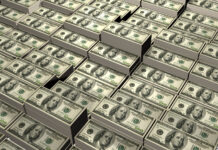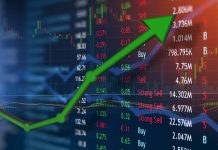Investors are clinging to safety following a string of disappointing economic headlines.
U.S Treasury bonds registered their biggest weekly gains since volatility swept the market in early December. Other safe havens like gold also climbed, while “risk-on” sectors like energy and industrials suffered their sharpest weekly drops of the year.
Today’s catalyst was a poor non-farm payrolls report from the U.S. Labor Department. A mere 20,000 jobs were added in February, way below economists’ average estimate of 180,000.
The miss came close on the heels of negative developments in two other major economies. On Thursday, the European Central Bank slashed its 2019 economic growth forecast from 1.9 percent to 1.1 percent.
Policymakers also announced new liquidity measures — essentially low rates to boost growth. That hammered the euro to its lowest level against the U.S. dollar in 1-1/2 years.
China’s Exports Plunge
China followed with its own bad news in the following overnight period, revealing a 20.7 percent drop in exports. That was the biggest shrinkage in three years and more than quadruple the forecast. It follows months of slowing as President Trump’s trade war squeezes the country’s once-mighty factory sector.
As a side note, the Semiconductor Industry Association separately reported that chip sales fell 5.7 percent in January. It was the first monthly drop in more than two years. Semiconductors can matter because they fluctuate with China and the global economy in general.
We don’t want to overstate the weakness because it wasn’t all bad. ADP’s private-sector payrolls report, for instance, was pretty much inline with a big upward revision for January. Wages kept rising and unemployment ticked lower. Initial jobless claims also showed fewer layoffs than expected.
The noteworthy thing about the current situation is that safe havens are rallying together. At other times gold and the U.S. dollar would move in opposite directions, but now they’re starting to move together.
Ditto for bonds. Normally lower interest rates would depress the U.S. dollar. Yet now we see rates fall as the greenback climbs.
In conclusion, people aren’t talking about a recession yet. But the current price action suggests investors are wary of both domestic growth and opportunities overseas.





























